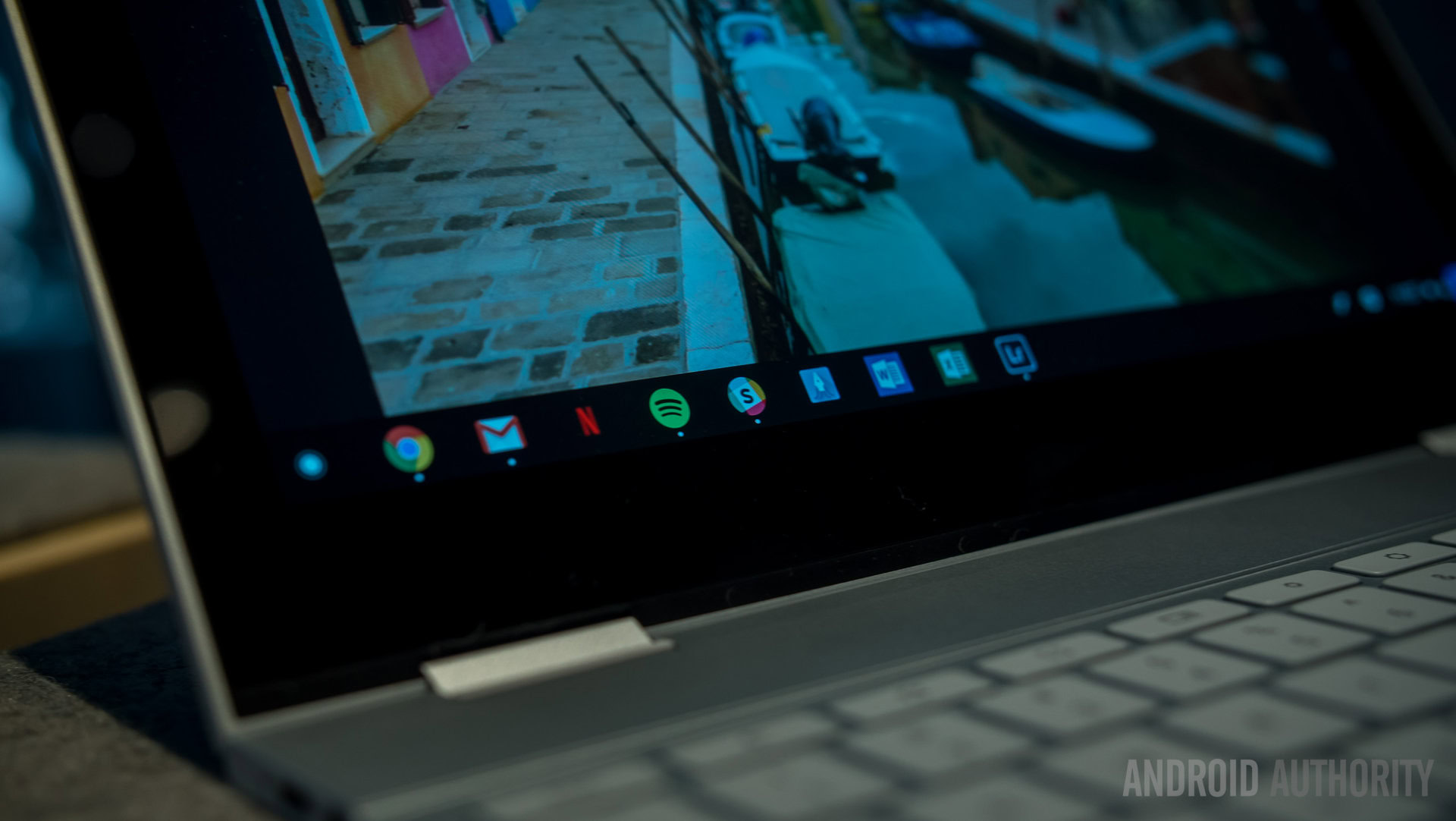Affiliate links on Android Authority may earn us a commission. Learn more.
Google’s next Pixelbook could track and follow your face to create better viewing angles

As strange as that sounds, you have to admit that it is oddly satisfying when you lift up a laptop lid in one smooth, slick motion courtesy of a well-designed hinge. Google nailed this feel quite recently with the Pixelbook. The premium Chromebook’s 360-degree hinges feel just right when flipping between laptop and tablet modes.
With all this in mind, it’s not that surprising to hear that Google has had hinge-based innovation on its mind for quite some time.
In fact, according to a newly-granted patent, Google has been looking at ways to improve laptop ergonomics since 2013. Although maybe this time the search giant went a little too far trying to fix a problem that doesn’t really exist.
The patent, uncovered by Patently Apple, describes a sort-of-hands-free system that essentially opens a laptop for you. It starts with pushing a touch-sensitive pad. This then activates one or more motorized hinges that stop once the screen is in the correct position.
This needlessly complex system somehow isn’t done, though. The patent also describes a series of ambient light and camera sensors that track the user’s face. By doing this, a laptop could theoretically adjust its display based on the user’s position. That’s right, you might one day own a laptop that follows your head movements.
Here’s the related excerpt from the patent itself:
In one embodiment, the computer may have an image sensor configured to detect the user’s face and continuously adjust the angle and position of the lid to keep the face in the field of view of the camera and/or keep the lid in the optimum viewing position.
An autonomous screen isn’t the worst idea in the world, but the combination of motorized hinges and motion-tracking tech does seem a little excessive when you could easily just tip the lid with your finger.
Will Google’s incredibly lazy (and potentially a little bit creepy) hinge-tech come to the Pixelbook 2? It could, of course, but it’s always worth remembering that companies like Google submit thousands of patents that never come to life. I know I’d be quite happy to see this one stay dead.